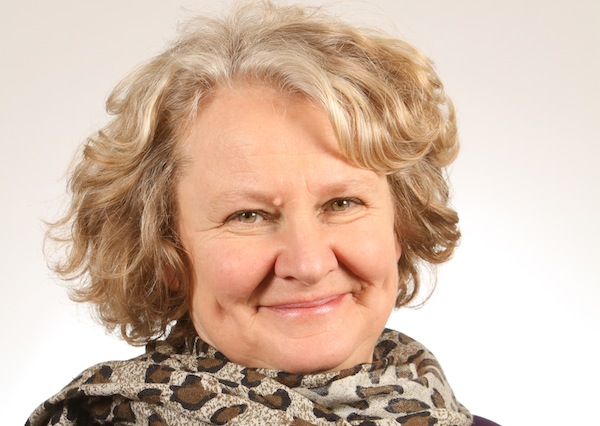How, as a seasoned politician, might you decide who to back in the party’s leadership contest? It might be that you’re swayed by the ministerial experience of one candidate, or perhaps the fierce commitment of another candidate to a policy that you hold very dear. Perhaps it’s because you’re from the same faction in the party, because you’ve been friends for years, or maybe it’s because, as a result of various twists of good fortune and circumstances not entirely under their control, they have children.
Apparently, that last is the primary reason that Helen Goodman, a Labour MP who served as a minister when her party was in government, selected Yvette Cooper as her star candidate for Labour leader. In a piece for the Huffington Post, the MP for Bishop Auckland writes that the most important thing to her is that she is a mother, and ‘that’s why I’m backing Yvette Cooper to be the next Leader of the Labour Party’. She adds:
‘As a working mum, she understands the pressures on modern life.
‘We need a Leader who knows what challenges ordinary people face day to day, and who is committed to helping them. And as I see it, there are six major challenges that politicians need to get to grips with.’
The rest of the post sets out those six major challenges, and is very policy-rich and focused on why Cooper is the best person to meet those challenges. But the opening paragraph suggests that it is only because Cooper is a mother that she is able to identify and meet these challenges.
To be fair to Cooper, whose campaign team saw the blog post before it was published, she is one of the most scrupulous politicians at keeping her children out of the limelight. Any instance in which they have been mentioned at all by anyone tends to get filed in the drawer marked Never Do This Again, because she and her husband are very keen to let them have normal lives without Westminster peering in at them.
Perhaps Goodman – who has quite interesting judgement about what it is wise to say, both about colleagues and about parts of the country that she thinks are in her constituency – does think that unless a female politician is a mother, she cannot possibly understand the pressures that modern families face, even if her personal circumstances may be considerably more comfortable than the average modern family.
But Goodman is also putting her finger on a difference between Cooper and the other female candidate for the leadership, Liz Kendall. Kendall doesn’t have children. Her relationship with her partner ended shortly before the General Election, something she made a slightly forlorn joke about when she spoke at the Press Gallery lunch, saying voters looking for love shouldn’t take advice from her. For various reasons, Kendall’s circumstances are such that she cannot tick the ‘as a mother’ box.
Why does this matter? Apparently, it does because voters in focus groups say they view a politician with children as more responsible and are suspicious of women who do not have children in politics.
This is why you often hear politicians of all creeds saying the words ‘as a mother’ and ‘as a father’. Voters, rightly or wrongly, like it.
What Goodman and others who fall into the ‘as a…’ trap are trying to express in a slightly more tangible form is that their favourite candidate for a job or they themselves have empathy. Actually, empathy doesn’t necessarily feed off experience. In some people, it is an utterly captivating gift: an innate ability to understand quite deeply how someone else feels about the situation they are in without being there at all, and then being able to communicate with and sometimes advise that person with wisdom and gentleness. Really gifted empathetic people are some of the most admirable in the world, while the rest of us must try to cultivate empathy as we cultivate personal organisation and good manners.
Being a parent does not automatically mean you will understand even other parents. You will still need empathy in order to put yourself in the shoes of a single mother living on benefits if you are married and running a house on two salaries.
Sure, you might understand sleep deprivation and the shock that comes when you realise you can no longer spend Sunday afternoon watching box sets and snaffling all the crisps, but must instead go to feed the ducks in the park, again. Even then, anyone who has not been blessed with children but has had the experience of caring for a sick family member for a prolonged period may point out that there is not a parental monopoly on sleep deprivation by any means.
To be a good MP, you will need empathy to understand your constituents: you cannot possibly have experienced the range of personal pressures and disasters that are described to you by the people sitting in your surgery and asking for help week after week.
Kendall may not have children, but her empathy is, as it happens, one of the attributes that seems to have attracted many of her most supportive colleagues to her in the first place. Shockingly, it is a gift that people can either be born with or cultivate without needing to give birth first. But it is perhaps a little difficult to identify without some kind of supporting story.
Fortunately MPs do have the opportunity to cultivate and demonstrate empathy in their daily interactions with the people they represent: their constituents. Both Cooper and Kendall have tens of thousands of these each, as do Andy Burnham and Jeremy Corbyn. Perhaps it would be better if their supporters focused on their work in this department, rather than family circumstances that are often as much about chance as they are good character.







Comments